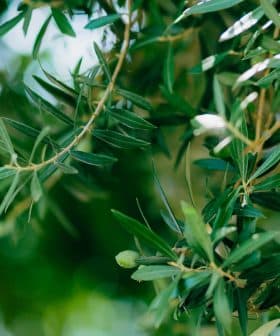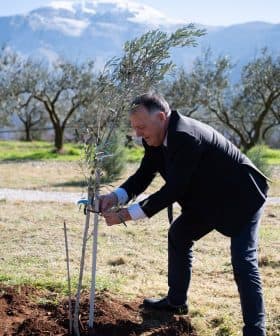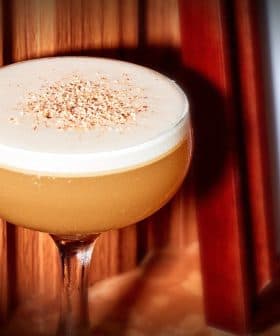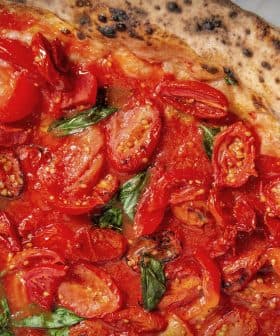Iconic Lebanese Breakfast Receives UNESCO Recognition
Al-man’ouché, the Lebanese breakfast pastry seasoned with olive oil and traditional spices, has been added to the UNESCO Intangible Cultural Heritage list.
 Al-Man'ouché (Photo: Rana Jdeidani)
Al-Man'ouché (Photo: Rana Jdeidani)  7.4K reads
7.4K readsAl-man’ouché, a traditional Lebanese breakfast food, has been added to the UNESCO Intangible Cultural Heritage list, celebrated by vendors like Mohamed Whehbi in Beirut and Rima Shaaban at the Souk-el-Tayeb market. Despite economic challenges, the cultural significance and enjoyment of al-man’ouché remain strong in Lebanon, providing a sense of belonging and comfort to its people.
The smell of al-man’ouché permeates every street corner in Lebanon. The ubiquitous breakfast food has been recognized on the United Nations Educational, Scientific and Cultural Organization (UNESCO) Intangible Cultural Heritage list.
In the heart of Beirut, Mohamed Whehbi has been selling manaish (the plural of al-man’ouché) in the Hamra neighborhood for the past two years.
Inside is a traditional oven under which firewood is burning. Ali, the chef, flattens a small piece of dough. He cuts the edge and puts a mix of za’atar and olive oil on top. He then places the flattened dough on a large cushion before sticking it inside the woodfire oven.
See Also:Traditional Turkish Olive Cultivation Practices Recognized by UNESCO“This oven and the bread (tannour bread) are 1,000 years old,” Wehbi said. “This is how our ancestors used to bake. Here in Lebanon, but also in Syria, Iraq and Pakistan, we do the same. And people like it because it’s healthy food.”
The name al-man’ouché comes from the Arabic word manqūshah, which describes the process of creating the dish. After the dough is rolled flat, it is pressed by the fingertips to create indentations for the toppings. Manqūshah comes from the root verb naqasha, meaning to carve out.
Closer to Beirut’s port, the Souk-el-Tayeb market takes place every Saturday morning. This is where Rima Shaaban is selling saj, another kind of al-man’ouché.
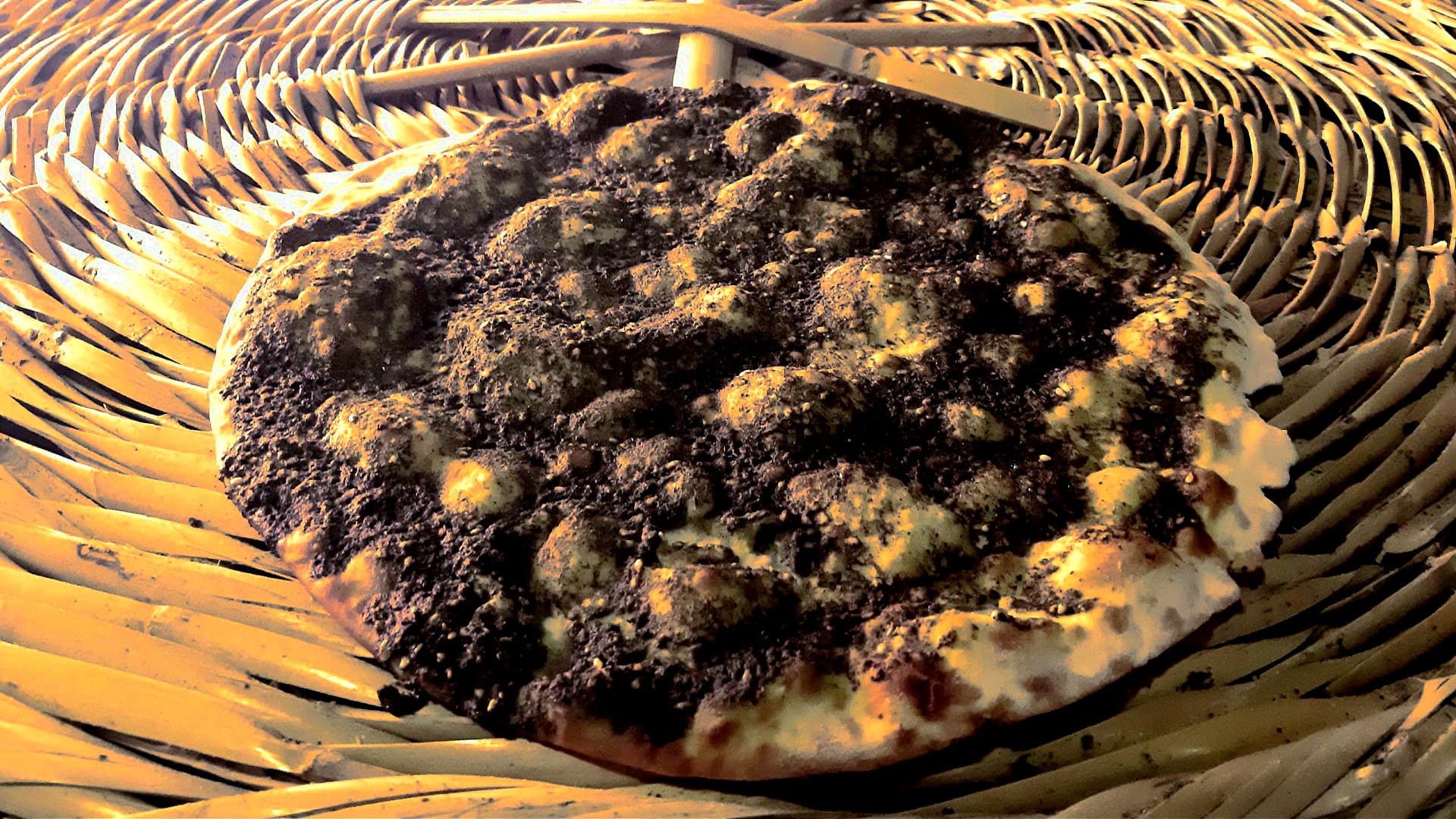
According to UNESCO, al-man’ouché differs from one bakery to the next with traditional family recipes passed down for generations. (Photo: Bernard Jabre)
Shaaban comes each week with her daughter, son and husband and bakes the small dough she has been preparing at home.
“Then, I flatten it to make it very thin, and I put it on top of the stove, which is like a dome,” explained the chef, who is also the owner of a restaurant near Chouf mountain outside of Beirut.
Shaaban adds various ingredients: olive oil, za’atar, cheeses, turkey, tomatoes or anything else her clients ask for.
“I’ve been doing manaish since I was seven years old,” she said. “I used to sit behind my grandmother and watch her.”
“Now, I’m doing this to help my family, too, because this is my business,” added Shaaban, with a large smile, her daughter standing next to her.
This family tradition is also very important for Bera Chibaro, a Canadian-Lebanese woman who just returned from North America.
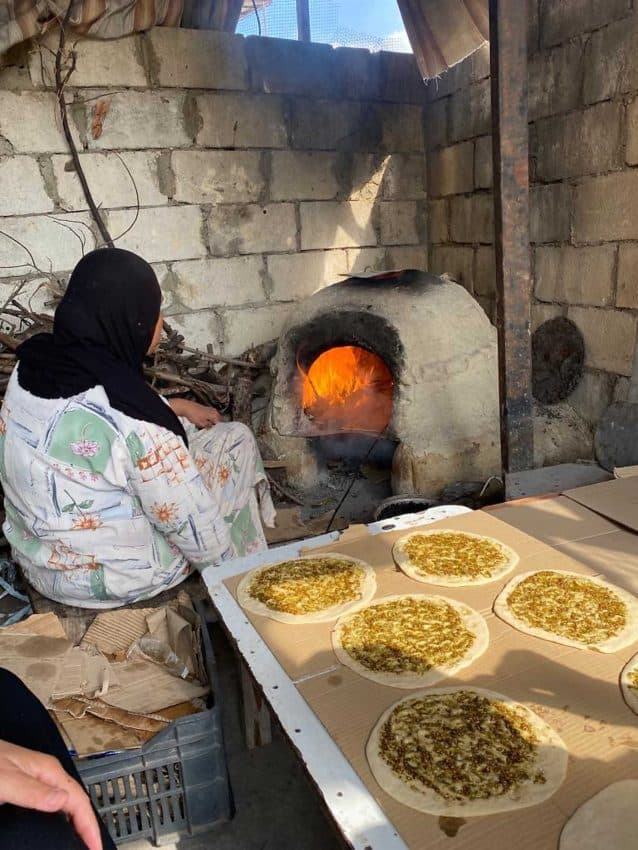
Al-man’ouché is prepared in a traditional dome-shaped woodfire oven in bakeries across Lebanon. (Photo: Ohaila Mortada)
Since she made it back to Beirut, she has come every Saturday to enjoy Shaaban’s al-man’ouché. It reminds her of her childhood in Beirut.
“You know, we grew up with the smell of the al-man’ouché every single morning,” Chibaro said. “You can find one in every community here in Lebanon.”
“Every house has a store selling manaish just next to it,” she recounted before grabbing a huge plate full of manaish.
In Tripoli, Lebanon’s second biggest city located north of Beirut, smells of olive oil and za’atar slowly baking on bread are all around the city.
Mohamed El Abed puts five manaish in a large oven surrounded by flames. Making his living out of this bakery, he is also very proud to see the dish on the UNESCO Intangible Cultural Heritage list.
“It’s very good news,” he said. “It’s nice, of course, because it’s an important meal for Lebanese, it means a lot for us, and it’s unique also.”
Barbara Massaad, author of many culinary books, is also really happy about this inscription. She visited more than 250 bakeries across Lebanon to recount the stories behind manaish.
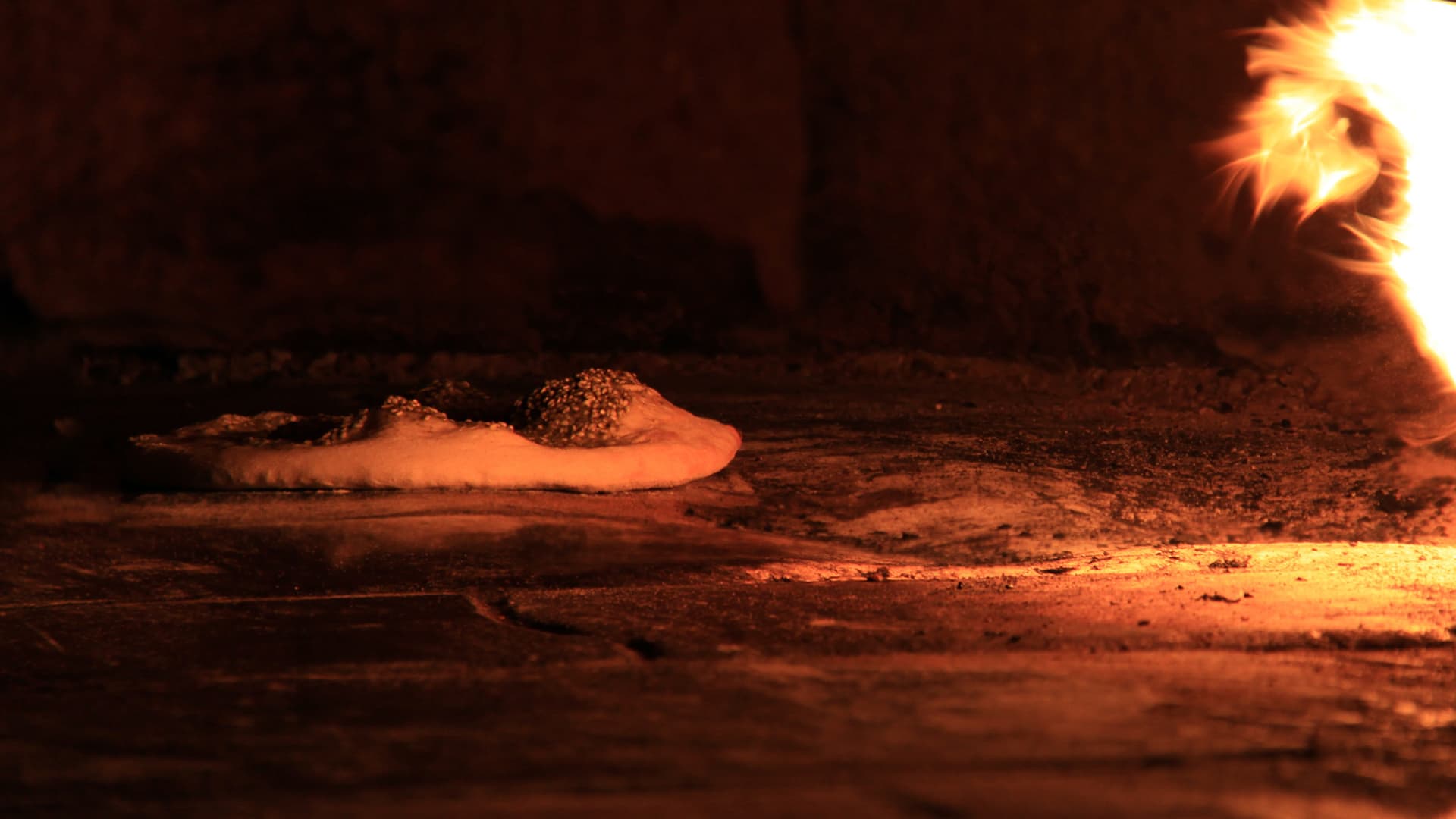
The nationwide consumption and production of al-man’ouché contributes to local economic development.
This announcement is a shining star in a dark sky for many Lebanese, hit hard by the most severe economic crisis in the past four years and now on the edge of an escalation of the ongoing conflict between Hezbollah and Israel.
“You know, every piece of happiness, we need to take it, and it makes all the difference,” Massaad said. “Because, when we wake up in the morning, we don’t know what to expect. We have been living a nightmare for the past four years.”
“Our life has been completely turned upside down,” she added. “So, you know, this little victory, this recognition of this belonging, that the al-man’ouché is ours and that nobody can steal it: this is great. It’s our al-man’ouché.”
Some people cannot afford to buy al-man’ouché anymore, hit hard by the economic crisis and inflation, which reached more than 200 percent in September.
But in the end, whether at home with family and friends or in their favorite bakery, al-man’ouché will always be part of Lebanon. It is engraved on Lebanese bellies, hearts and minds.
Share this article



